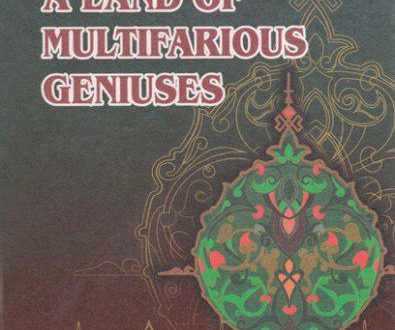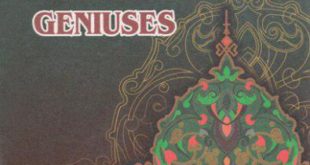He was one of the most generous people of the society. His countless property was mostly spent on the construction of many religious and cultural buildings in Samarkand, Tashkent and Kabul, such as madrasahs, mosques, reading rooms for students, as well as on the expenditures of the needy families. His motto for the whole life was “Our properties are for ordinary people”. Getting use of his high status in the society, he tried to prevent wars among the rulers of his time and among the princes fighting for the throne. He tried to calm the rivals and make peace between the rivalling parties. Such a political activity accompanied him during his whole life. Khoja Ahrar Vali died in 1490 and was buried in Samarkand.
According to the information provided by a well-known orientalist, Doctor of History Asamiddin Urinbayev, three books written by Khoja Ahrar Vali have reached us. One of them is “Faqarat al-arifin” (Citations from the utterances of those who are conscious of Allah). This book includes passages and shortenings borrowed from the ideas of the well-known representatives of Sufism. Another book “Validiyya” (Dedication to the Father) was written in accord the request of his father Khoja Mahmud. It contains the main principles of morality for those who chose the way of Sufism for his spiritual needs. This book became famous among the followers of the theory of Sufism and supporters of Khoja Ahrar Vali. It was highly appreciated by such great geniuses of our land as Alisher Navai and Abdurrahman Jami. Zahiriddin Muhammad Babur translated it from Persian into Uzbek and this translation was published in the “Yozuvchi” publishing house in Tashkent in 1991.
The third book written by Khoja Ahrar Vali was titled as “Havraiya” (Angels) and it was devoted to the commentaries on a rubai written under the title of “Havro” by a well-known Sufi poet of the 11th century Abu Sa’id Abulkhayr. Besides these monographic works, there are a number of letters written to his authoritative contemporaries. The study of these letters prove that Khoja Ahrar Vali was a great leader of his time and a man of high status in the society and one of the most respected scholars in the fields of the Islamic sciences. They help us to define his place in the social and spiritual life of the society.
It seems noteworthy to mention that a famous orientalist and historian Urinbay Asamiddinov prepared the Russian version of these letters for their publication and there was an offer to publish them in English. In collaboration with an American scholar, the professor of New-Jersey University Joe Ann Grosse, A. Urinbayev translated into English and published the collection of letters by Khoja Ahrar Vali under the title of “Khoja Ubaydullah Ahrar’s Letters and Disciples” in the famous “Brill” publishing house in Holland in 2002.
The life and creative activities of His Eminency Khoja Ahrar Vali, his teachings, advice and instructions given to his followers and disciples are mostly reflected in the writings of his students. One of them is “Silsilatu-l-arifin va tazkiratu-s-siddiqin” written by his devout disciple Mavlana Muhammad Qazi, and the second one is “Masmu’at” (All what we heard from others) written by Mir Abdul Awal Nishapuri. Mir Abdul Awal Nishapuri was Khoja Ahrar Vali’s most devoted disciple who earned his respect and married to one of his daughters. As is seen from its title, this book contained the most important points and principles of Sufism and practice as well as some samples of the history of life of his teacher and father-in-law Khoja Ahrar Vali.
The third source which gives interesting facts about Khoja Ahrar Vali’s life and activities is “Rashahat aynu-l-hayot” (Drops from the spring of life) written by Husain Ali Vaiz al-Kashifi as-Safi. Being an important historical source, this book became famous not only in the Muslim world but also in the European society of orientalists. This precious book was published in Tashkent in 2003 by Uzbek orientalists M. Hasani and B. Umrzaqov in the “Tib-biyot” publishing house named after Ibn Sina.
The study and investigation of the scientific and educational heritage left by the great scholar His Eminency Khoja Ahrar Vali who as a spiritual leader of Muslims of Central Asia played an important role in the social, economic and spiritual life of Maveraunnahr of the 15th century is a token of respect and estimation to his personality.
 Imom Buxoriy xalqaro ilmiy-tadqiqot markazi bukhari.uz
Imom Buxoriy xalqaro ilmiy-tadqiqot markazi bukhari.uz










